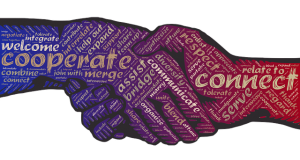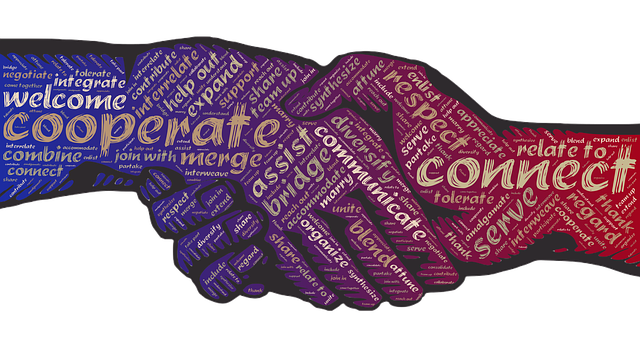 It is now clear that in a large number of organisations L&D and employees view learning at work very differently.
It is now clear that in a large number of organisations L&D and employees view learning at work very differently.
Many in L&D still focus all their attention on creating and managing training or e-learning. For them, this is what workplace learning is all about – making sure people learn from the stuff they provide for them. The technologies they employ underpin this approach: e-learning authoring tools to create templated content, and an LMS to store all the usage data.
Employees, however, have a very different view on learning. Classroom training and e-learning is largely seen as something to be avoided or at best endured. Many employees prefer to just Google things for themselves when they need help, and are happy to sort out their own performance or learning problems using resources they find on the Web. They also connect with others outside their organisation in a variety of social channels to hear about what they are up to. L&D often ignore the fact that this is happening, or else try to get people to record all these types of activities in their corporate learning platform, to make it seem they (L&D) have it under control and are somehow managing it all!!
Additionally, many employees realise that they actually learn most about how to do their job by just doing their job; by dealing with everyday problems and working alongside their colleagues. Whilst researchers have shown that this type of learning counts for upwards of 80% of how people learn at work, many L&D professionals resent this fact because it shows the way people learn most happens without their involvement.
In summary then, many employees are now well ahead of the game! Learning, for them, is something that happens as part of everyday work, when they need it, as well as a way to keep themselves up-to-date with new knowledge and skills in order to remain marketable and employable. So, consequently, they are not enthused by so-called “learning solutions” that are forced upon them, which don’t fit well with the way they now work and learn.
Hence, there is currently a jarring disconnect between these two views of workplace learning in many organisations.
Modern views about workplace learning are very different. Rather than forcing employees to do things in the traditional ways that they can manage and control, modern L&D professionals now work in line with employee working and learning patterns.
Whilst a modern L&D team believes that there is still a need for some form of top-down training and realise that conventional ways of classroom and e-learning need to be updated, they are not simply interested in putting “lipstick on the pig”, i.e. by applying the latest technology or trend – micro-learning, gamification, AI, VR or AR or whatever it might be – to their same old practices! Rather, they work with employees to identify the most appropriate solutions to their performance problems, rather than assume that training is the answer to every problem. And, in the case where it does involves some form of training, make sure that it best meets the ways these people prefer to learn at work.
Modern L&D also encourage and support independent personal continuous learning. They recognise they can’t organise everything everyone needs, and people need to have the flexibility to learn things in the ways that suit them personally. They don’t try to manage what people do, but focus on building and developing the new digital learning and PKM (personal knowledge management) skills that every employee will need to survive and thrive in the networked world.
Modern L&D also play a part in supporting managers to grow and develop their own teams, and help them learn continuously from their work and from one another, sharing their knowledge and work experiences so that the true social learning comes from social collaboration.
In other words, modern L&D believes that designing, delivering and managing (e-)training is just one part of a much bigger – enabling and supporting – role they have in today’s workplace.
Are you a modern L&D professional? If not, do you want to find out how to become one? If so, come and join one of upcoming workshops, or sign up for my new online resource, Modern Workplace Learning 2018– and get to hear about what others are doing in the profession to move it forward.
Jane Hart
Latest posts by Jane Hart (see all)
- What is Continuous Learning? - 20 October 2020
- Jane’s Personal Top 10 Tools for Learning in 2020 - 11 August 2020
- The Internet Time Alliance Jay Cross Memorial Award 2020 is presented to Andrew Jacobs - 5 July 2020
- Incremental Learning – the real continuous learning - 6 June 2020
- How can employers support online learning? Think differently! - 22 May 2020
